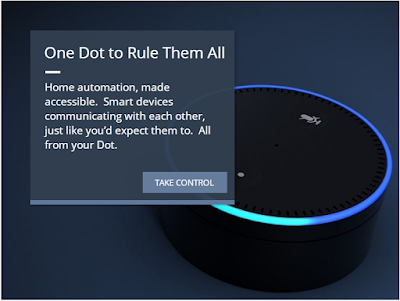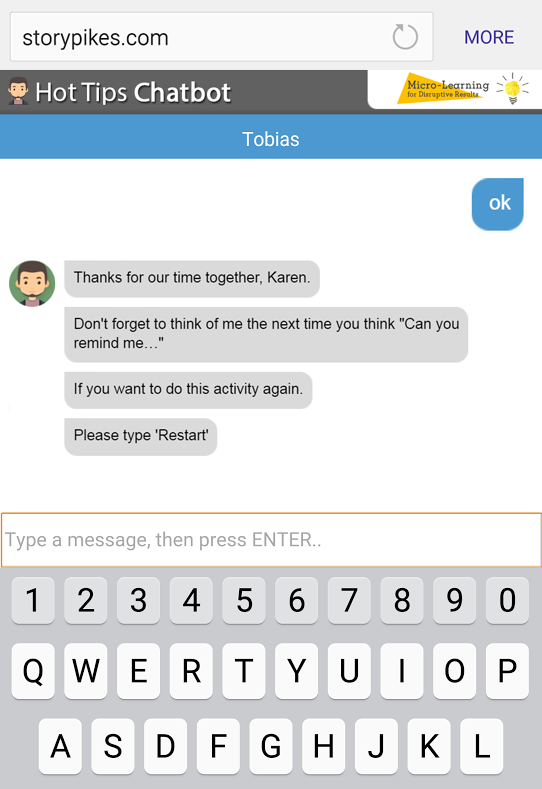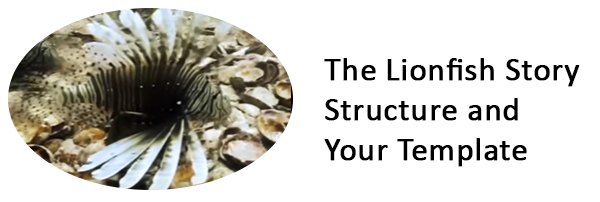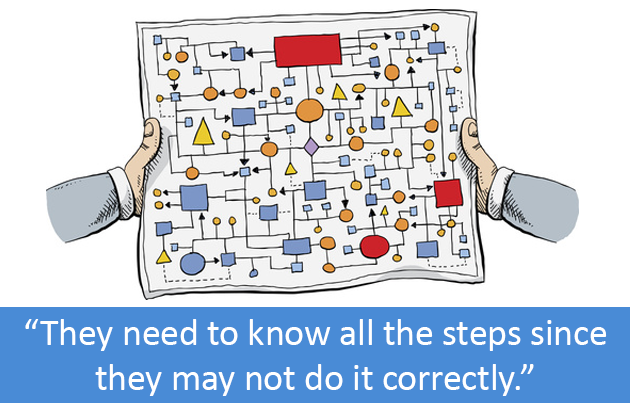Do we have a skills crisis? Some economists and academics reject the idea of a skills crisis, but survey findings say otherwise. We Have a Skills Gap Most (or 61% of) employees who responded to this Udemy survey think there is…
Category: Uncategorized
Hands-On #1: Technique on Combining Factual Content with Stories
How do you make sure that when using stories in your lesson, you still drill down to the details of the content? One of the most challenging tasks in Story-Based Learning Design is combining facts within the story. …
Hands-On #4: Download your Microlearning Flashcards Demo Source Files
In the context of Microlearning, instant learning happens. Remember your parents or grade school teacher flashing cards and instantly asking you the right answer? I love this a lot in route learning – 10 x 5 (card one), then the…
Hands-On #3: Download Your Copy of the Microlearning Chatbot (Emulation)
The worlds of Learning Machines and Deep Learning are now vocabularies borrowed from the cognitive sciences and now applied in technology. IBM touts its Watson to be a learning machine capable of deep learning and more capabilities. Amazon’s Alexa promises…
Hands-On #2: Download Your Copy of the Story Development Template
When I saw the videos from the University of Western Florida, I thought the way they do “Mistory” is fascinating. The videos educate while entertaining the viewers and learners. Please see the website with several videos. This hands-on guide is…
Are You Breaking Learners’ Trust? – Tip #133
Trust is a basic instinct. We are born with a propensity for it. Even 18-month-old children know who they can or can’t trust. When we trust someone, we are willing to take risks. Even if we aren’t good swimmers, we’re…
“Keep This A Secret…” – Tip #132
What happens when you tell someone to keep a secret? “Okay I’ll tell you something, but keep it a secret.” They will likely tell someone else who will tell other people as well. This is because our minds want to…
Is Your Lesson Like the Sinking Titanic? – Tip #131
Are we still capable of human wisdom? “But of course!” Most of us will probably give such an emphatic answer. But scientists fear that in an increasingly digital environment, our capacity for “human wisdom—empathy, compassion, altruism, tolerance and emotional stability”…
What We Learned from the United Airlines Incident – Tip #130
Sad things happened to some people, a United Airline passenger and its employees and management. This breaks my heart and makes me sad. Trainers and leaders are supposedly guardians of right or wrong behaviors. We are messengers and caretakers of…
Why Does Microlearning Mean Better Learning? – Tip #129
Have you ever panicked or felt disconnected because you misplaced your mobile phone? Research shows that 8 out of 10 adult smartphone users “reach for their phone within 15 minutes of waking”. But as we get connected and stay connected with the…
Be a Persuasive Storyteller in Social Media – Tip #128
Social Media and the Leader Results of a survey showed that 75% of employees perceived that social media presence improves the ability to lead. Tu and McIsaac defined social presence as “the degree of feeling, perception, and reaction to being connected by…
3 Strategies for Sure-Fire Microlearning Success – Tip #127
In my interactions with instructional designers, one thing always stood out: They have a tendency to provide a lot of content. Their mindset is: “Learners need to know all the steps since they may not do it correctly.” However, my…
Why is Microlearning Futile? How to Fix It – Tip #126
This week I had an exhilarating conversation with a Caltech professor at the Athenaeum Caltech Faculty Club. The professor is responsible for the facilities where robotic experiments are conducted. He said, “many of my graduate research students stand back and…
Proof of Disruptions – Tip #125
When you hear the word “disruption,” what do you think about? Most would probably equate it with something that temporarily derails from achieving an objective. For instance, a car breakdown on your way to work. Disruption usually has a negative denotation.…
Are Instructional Designers Incapable of Microlearning Design? – Tip #124
I have asked this serious question in multiple ways. Why is it difficult for instructional designers to think and do Microlearning? I define Microlearning closely to that of Theo Hug’s description: Microlearning is: 1 Low effort 2 Fast 3 Easy…















